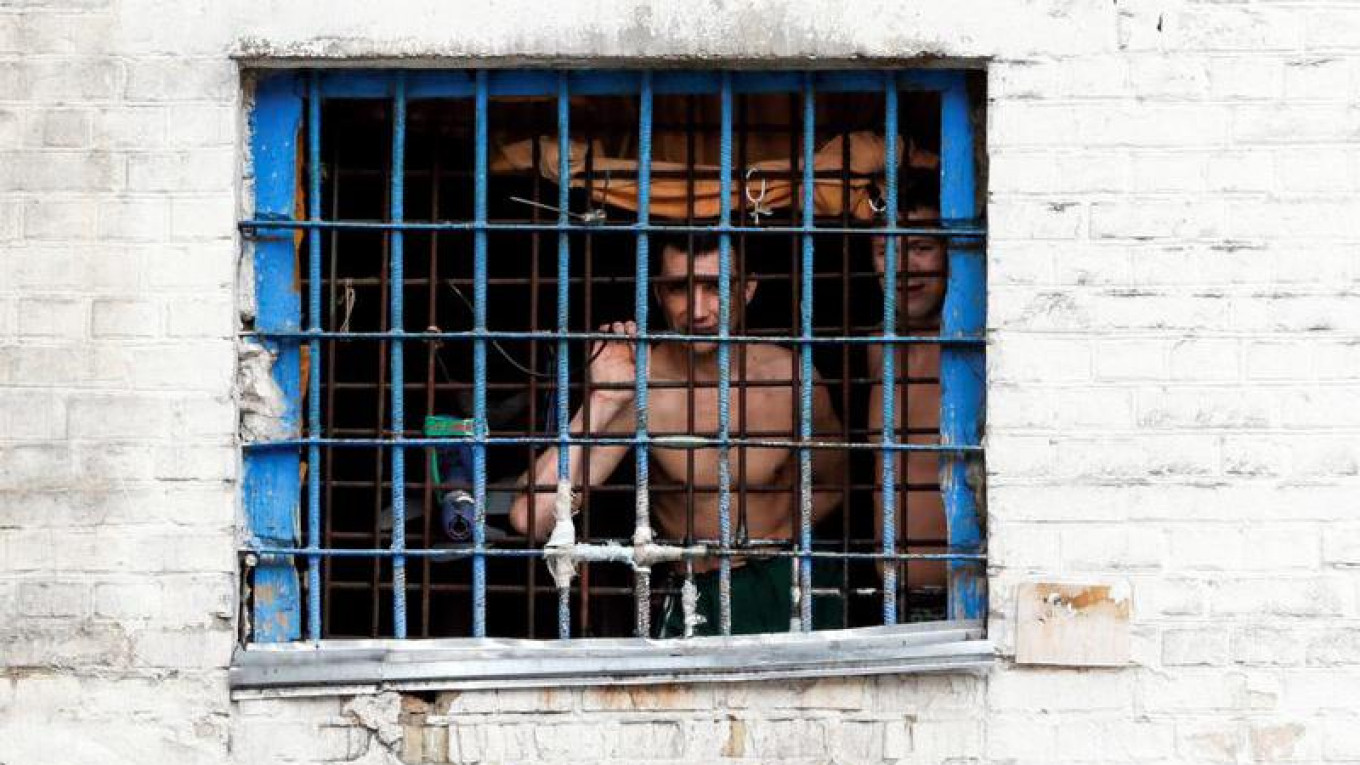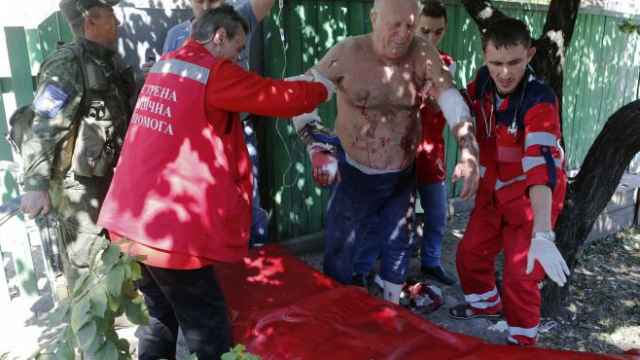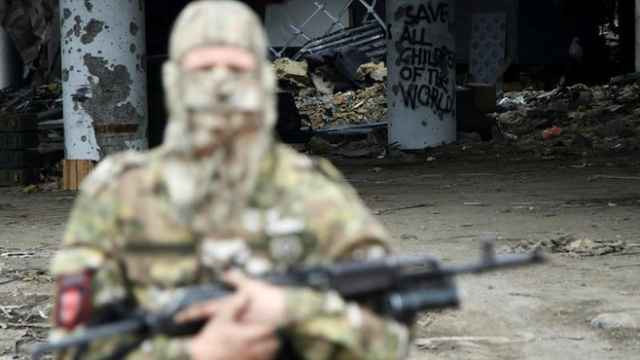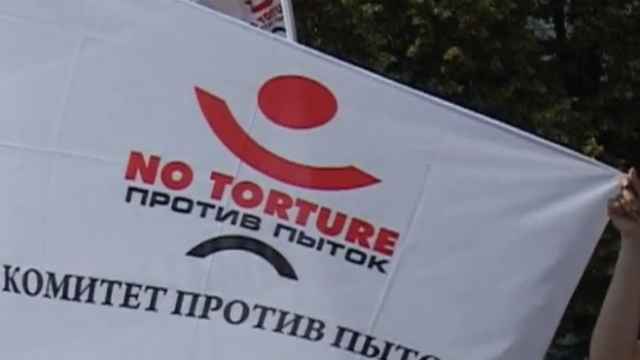Kostyantyn Beskorovayny spent 15 months jailed secretly by the Ukrainian Security Services (SBU). An active member of the Communist party in the small eastern town of Kostyantynivka, he was no supporter of Ukraine’s government- but not a “separatist” either. He worked as a dentist at a local hospital until Nov. 2014, when Ukrainian government authorities arbitrarily detained him.
Several times during Beskorovayny’s protracted detention — allegedly at an SBU compound in Kharkov — his captors told him that he had been put up for prisoner exchange with Russia-backed separatists. The separatists did not want him. Time dragged on, and the guards at the compound grumbled that prisoners like Beskorovyany were “ghosts” and “there was no budget” to feed them.
“You do not exist,” they kept telling him
and the other inmates.
Beskorovayny was finally released in Feb. 2016. Sixteen other “ghosts” — 15 men and one woman — remained. Beskorovayny had had no contact with the outside world from the time he was detained in 2014 until his release. The detention was not officially registered and the SBU has denied it ever happened.
Igor Kozlovsky, a university professor in his sixties, has also been jailed in Donetsk by the de facto authorities of the self-proclaimed Donetsk People’s Republic (DNR). A religious scholar and a pacifist, he was an active participant in the Donetsk ecumenical prayer marathon for United Ukraine back in 2014, back when Russia-backed separatists began to form a stronghold in parts of the east. Dr. Kozlovsky made no secret of his pro-Ukrainian views, but had nothing to do with the fighting.
It was January when the DNR State Security Ministry — described by local residents as “the most powerful and the most feared” agency on the ground — dragged Kozlovsky to their headquarters in central Donetsk. He was held there incommunicado for a month, then transferred to a pretrial detention center on weapons possession charges. DNR representatives flagged Kozlovsky’s case at a meeting of a humanitarian sub-group at Donbass conflict negotiations in Minsk in June, labeling Kozlovsky as a “Ukrainian spy” and a “weapons manufacturer.” There is little doubt that the DNR continues to hold him as a bargaining chip for exchange.
Vadim (not his real name) is no longer in captivity. The 39-year-old man from Donetsk bears the honor of being held and tortured by both sides in the Ukranian conflict. Armed men in camouflage uniforms without insignia seized Vadim at a checkpoint manned by Ukrainian forces in April 2015. They forced him to his knees, pulled a bag over his head, and called him a “separatist thug” and a saboteur.
Vadim spent more than six weeks in captivity. His interrogators tortured him with electric shocks, burned him with cigarettes, and beat him, demanding that he confess to working for the DNR. After they finally released him, Vadim returned to Donetsk, only to be detained by the local de facto authorities. They suspected him of having been recruited by Ukraine’s SBU during his time in captivity. He spent more than two months in incommunicado detention in an unofficial prison in central Donetsk, where his captors once more beat and ill-treated him.
These three stories form part of a joint report, “You Do Not Exist”, published today by Human Rights Watch and Amnesty International. Our two organizations chose to speak in one voice on the pressing issue of arbitrary detentions, enforced disappearances, and torture as part of the armed conflict in eastern Ukraine. The report, released in Kyiv on July 21, is based on interviews with 40 victims, their family members, witnesses, victims’ lawyers, and other sources. When working on the report, Amnesty International and Human Rights Watch carried out extensive research in both government and separatist-controlled areas in the east.
We investigated nine cases of arbitrary, prolonged detention of civilians by the Ukrainian authorities. They included three cases of alleged enforced disappearances in informal detention sites supposedly ran by Ukraine’s SBU and nine cases of arbitrary, prolonged detention of civilians by Russian-backed separatists. The cases detailed in the report mainly took place in 2015 and the first half of 2016. Most detainees suffered torture or other forms of ill-treatment, which is a crime under international law.
In almost all the cases which we
investigated, captors told victims that they were being
offered for prisoner exchanges between the warring sides. These
stories gives us strong grounds to believe that both sides could be
using civilians as “fodder” for potential exchanges. Such
practices could constitute hostage taking, which again is a war crime.
We are calling both on the Ukrainian authorities and pro-Russian separatists to end enforced disappearances and arbitrary and incommunicado detention, and to put into effect zero-tolerance policies for torture and ill-treatment of detainees. No one, no matter who they are, or where they are, should have endured what Beskorovaynyi, Kozlovsky, and Vadim have been subjected to.
Tanya Lokshina is a senior researcher for Europe and Central Asia at Human Rights Watch.
A Message from The Moscow Times:
Dear readers,
We are facing unprecedented challenges. Russia's Prosecutor General's Office has designated The Moscow Times as an "undesirable" organization, criminalizing our work and putting our staff at risk of prosecution. This follows our earlier unjust labeling as a "foreign agent."
These actions are direct attempts to silence independent journalism in Russia. The authorities claim our work "discredits the decisions of the Russian leadership." We see things differently: we strive to provide accurate, unbiased reporting on Russia.
We, the journalists of The Moscow Times, refuse to be silenced. But to continue our work, we need your help.
Your support, no matter how small, makes a world of difference. If you can, please support us monthly starting from just $2. It's quick to set up, and every contribution makes a significant impact.
By supporting The Moscow Times, you're defending open, independent journalism in the face of repression. Thank you for standing with us.
Remind me later.







